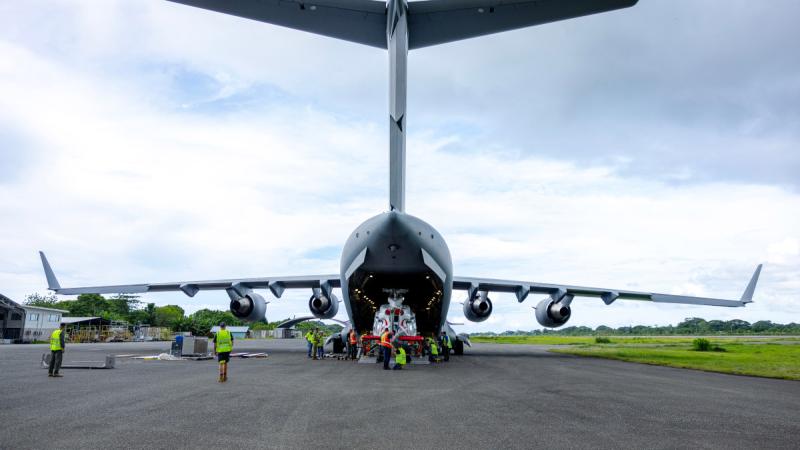Today hundreds of transport workers will protest at Aldi stores around the country demanding the company meet with the TWU and sign up to six principles to make their transport supply chain safer, fairer and more sustainable.
Protests will take place in NSW, VIC, QLD, SA and WA, with workers committed to ramping up action without a commitment from the supermarket giant.
After 14 weeks, the retail giant has failed to respond to a claim served by transport workers calling on Aldi and 39 other major retailers, manufacturers and agricultural companies to sign up to safe, fair supply chain principles. Several other supply chain clients have responded and met with the TWU to discuss the principles, but Aldi has remained silent.
Unlike Coles and Woolworths, Aldi has previously refused to sign a charter with the TWU on supply chain accountability, and failed twice in the Federal Court to silence truck drivers speaking out on safety in Aldi’s supply chain.
The crisis in transport has this year seen the collapse of Australia’s largest cold chain operator, Scott’s Refrigerated Logistics, as well as Rivet Mining Services and gig start-up MilkRun.
Administrators said a key reason for Scott’s collapse was “uncommercial customer arrangements.” When wealthy clients profit off the back of razor-thin margins it puts deadly pressure on drivers and operators to meet unrealistic deadlines and cut corners in safety to stay in business.
This year 108 people have died in truck crashes, 28 of them truck drivers. In the last financial year there have been close to 200 insolvencies in the trucking industry.
The six principles of the claim are:
· Safety and fairness – accountability for safe, fair work throughout their supply chains
· Transparency – over transport contracts so no worker falls through the cracks
· Collective voice – ensuring transport workers can speak out on pay and safety
· Education and consultation – on issues that impact workers’ pay and safety
· Lifting industry standards – eliminating financial incentives and pressures to take risks
· Disaster preparedness – equipping workers to safely navigate natural disasters, pandemics and other supply chain disruptions
TWU Assistant National Secretary Nick McIntosh said that companies like Aldi had to step up urgently and be accountable for safety in their supply chains.
“It is inexcusable that Aldi has consistently refused to act on lifting standards in its supply chain. The deadly pressure on drivers and operators is building every day, and workers will not accept silence from companies like Aldi who refuse to come to the table on safe supply chains.”
“When you’ve got wealthy clients like Aldi pushing drivers and operators to the brink, and gig giants like Amazon exploiting thousands on rock-bottom rates, it’s no wonder this industry is in crisis.”
“For years, Aldi has not only ignored truck drivers speaking out on safety, but tried to take legal action against them for doing so. Workers have made it very clear today: Aldi and other behemoths must sign up to principles on decent and fair supply chains, and they must do so urgently before this industry reaches breaking point.”
“Workers have committed to further protests and convoys to hold wealthy clients to account until they have a safe, fair and sustainable industry. They can’t afford not to. For them, it’s literally a matter of life or death, with every day that Aldi refuses to act another day truck drivers and operators are under deadly pressure.”
“The Albanese government has committed to introducing reform in transport to set fair, safe and sustainable standards through the Fair Work Commission. But Aldi can step in today to ensure that its supply chains are safe, and work towards reducing the crisis in transport instead of profiting from it.”
Workers, industry associations and employers will be in Canberra next week calling on Federal Parliament to pass lifesaving transport reform that would address deadly supply chain pressures.







